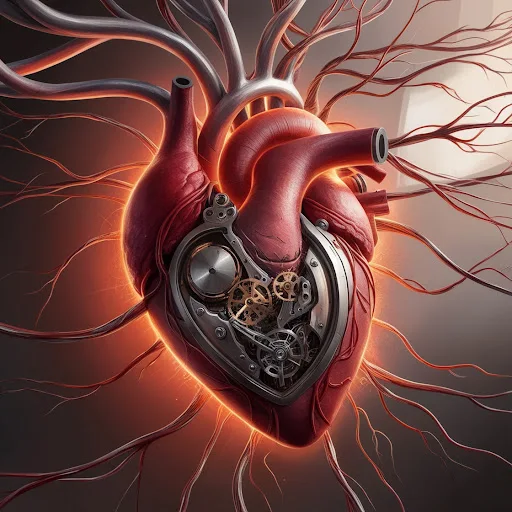The Importance of Early Detection of Coronary Heart Disease According to European Medical Experts
Coronary heart disease (CHD) is a leading cause of death globally. Early detection is crucial for preventing severe complications and improving survival rates. European medical experts emphasize the significance of recognizing CHD symptoms early and undergoing regular screenings. This article explores why early detection is essential and the methods recommended by experts.
Understanding Coronary Heart Disease
Coronary heart disease occurs when the coronary arteries that supply blood to the heart muscle become narrowed or blocked due to plaque buildup. This can lead to angina (chest pain), heart attacks, and other cardiovascular complications. Key risk factors include high blood pressure, high cholesterol, smoking, obesity, and a sedentary lifestyle.
Why Early Detection is Crucial
1. Preventing Heart Attacks
Early detection of CHD can prevent heart attacks. By identifying and managing risk factors early, patients can make lifestyle changes and receive treatments that reduce the risk of heart attacks. This proactive approach can save lives and reduce the burden of heart disease.
2. Better Treatment Outcomes
When CHD is detected early, treatment is more likely to be effective. Interventions such as medication, lifestyle modifications, and surgical procedures can be implemented before the disease progresses to a critical stage. This leads to better outcomes and improved quality of life for patients.
3. Reducing Healthcare Costs
Early detection and management of CHD can significantly reduce healthcare costs. Preventing severe complications and the need for emergency treatments or surgeries is more cost-effective than treating advanced stages of heart disease. This benefits both patients and healthcare systems.
4. Improving Quality of Life
Early diagnosis allows individuals to take control of their health. By managing risk factors and receiving appropriate treatments, patients can lead healthier, more active lives. This not only improves physical health but also enhances mental and emotional well-being.
Methods of Early Detection
1. Regular Health Screenings
Regular health screenings are vital for early detection of CHD. European medical experts recommend the following tests:
- Blood Pressure Measurement: High blood pressure is a major risk factor for CHD. Regular monitoring can help detect hypertension early.
- Cholesterol Levels: High levels of LDL (bad) cholesterol and low levels of HDL (good) cholesterol increase the risk of CHD. Regular blood tests can monitor cholesterol levels.
- Blood Sugar Levels: Diabetes is a significant risk factor for CHD. Regular screening for blood sugar levels can help detect and manage diabetes early.
2. Electrocardiogram (ECG)
An ECG measures the electrical activity of the heart and can detect irregularities that may indicate CHD. It is a simple, non-invasive test that provides valuable information about heart health.
3. Stress Testing
Stress testing involves monitoring the heart while the patient exercises. This test can reveal how well the heart handles physical activity and can detect problems that may not be apparent when the heart is at rest.
4. Imaging Tests
Imaging tests such as echocardiograms, CT scans, and MRIs provide detailed pictures of the heart and coronary arteries. These tests can identify blockages, structural abnormalities, and other signs of CHD.
5. Blood Tests for Inflammatory Markers
Inflammation plays a key role in the development of CHD. Blood tests that measure markers of inflammation, such as C-reactive protein (CRP), can help detect early signs of heart disease.
Recommendations from European Experts
1. Public Awareness Campaigns
European countries have launched public awareness campaigns to educate people about the importance of early detection of CHD. These campaigns emphasize the need for regular health check-ups and the recognition of risk factors and symptoms.
2. Access to Preventive Care
Experts advocate for improving access to preventive care services. This includes making screenings and diagnostic tests more widely available and affordable, particularly in underserved communities.
3. Lifestyle Modifications
European medical experts stress the importance of lifestyle modifications to reduce the risk of CHD. These include adopting a heart-healthy diet, engaging in regular physical activity, maintaining a healthy weight, quitting smoking, and managing stress.
4. Personalized Medical Advice
Healthcare providers should offer personalized medical advice based on individual risk factors. Tailored recommendations and treatment plans can effectively address specific health needs and improve outcomes.
Conclusion
Early detection of coronary heart disease is essential for preventing severe complications, improving treatment outcomes, and enhancing quality of life. European medical experts emphasize the importance of regular health screenings, recognizing risk factors, and adopting healthy lifestyle habits. By taking proactive steps towards early detection and management, individuals can significantly reduce their risk of heart disease and enjoy better heart health.
Stay informed, stay proactive, and prioritize early detection for a healthier heart and a brighter future.
 Reviewed by Rendra dria
on
June 23, 2024
Rating:
Reviewed by Rendra dria
on
June 23, 2024
Rating:










No comments:
Please comment properly. For those who have difficulty commenting, please use Anonymous. Thank you for your participation.